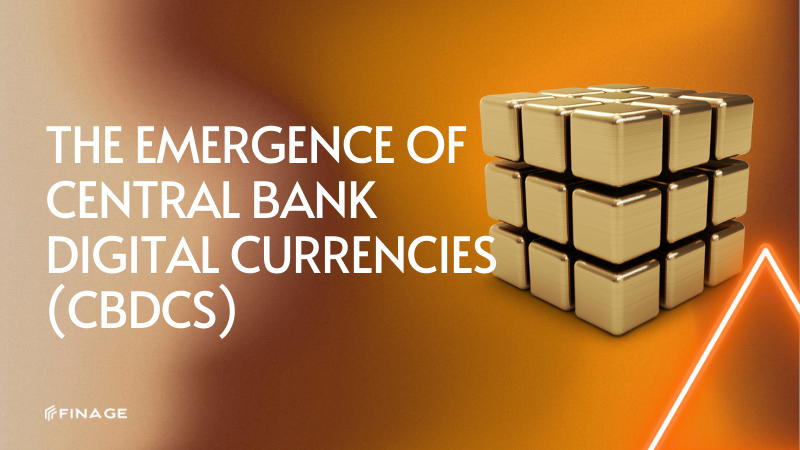The Growth of Digital Banking in Emerging Markets
5 min read • January 18, 2024

Introduction
The rapid expansion of digital banking within emerging markets marks a significant shift in the financial landscape, propelled by technological advancements and changing consumer preferences. In regions where access to traditional banking services is constrained, digital banking emerges as a transformative solution, offering financial inclusivity to previously underserved populations. With the widespread availability of smartphones and the Internet, digital banking platforms provide convenient and accessible avenues for individuals to conduct financial transactions, access credit, and manage their finances efficiently. This evolution not only caters to the unbanked or underbanked populations but also fosters economic growth by enabling businesses to engage in online commerce and access financial services previously out of reach.
This blog post aims to dissect the burgeoning expansion of digital banking in emerging markets, analyzing the driving forces behind its growth while highlighting its numerous benefits and associated challenges. It seeks to explore the transformative power of digital banking in promoting financial inclusion, enhancing access to financial services, and spurring economic development. Furthermore, the article intends to assess the prospects of digital banking within these markets, considering factors such as regulatory frameworks, infrastructure development, and the evolving digital landscape's impact on the future trajectory of financial services in emerging economies.
Table of Contents
- Overview of Digital Banking in Emerging Markets
- Significance and Current State
- Key Drivers of Growth
- Benefits of Digital Banking in Emerging Economies
- Enhancing Financial Inclusion
- Streamlining Financial Services
- Challenges and Barriers
- Infrastructure and Connectivity Issues
- Regulatory and Security Concerns
- Case Studies: Success Stories
- Mobile Banking in Africa
- Online Payment Platforms in Asia
- Role of Fintech and Innovation
- Impact of Fintech Startups
- Innovative Products and Services
- Consumer Behavior and Market Adoption
- Digital Literacy and Trust
- Adapting to Local Needs and Cultures
- Future Trends and Predictions
- Integration with Global Financial Systems
- Emerging Technologies and Their Impact
- Conclusion
Overview of Digital Banking in Emerging Markets
Significance and Current State
In emerging markets, digital banking plays a pivotal role in providing financial services to a large unbanked population, offering an alternative to traditional banking systems.
Key Drivers of Growth
The growth is driven by factors such as increasing internet and smartphone penetration, supportive government policies, and a young, tech-savvy population.
Benefits of Digital Banking in Emerging Economies
Enhancing Financial Inclusion
Digital banking facilitates greater financial inclusion, enabling access to banking services for those previously excluded due to geographical or economic barriers.
Streamlining Financial Services
It offers a more efficient and cost-effective way of delivering financial services, improving the overall banking experience for customers.
Challenges and Barriers
Infrastructure and Connectivity Issues
Limited infrastructure and internet connectivity remain significant challenges in some regions, hindering the adoption of digital banking.
Regulatory and Security Concerns
Navigating complex regulatory environments and ensuring robust security measures are critical challenges for digital banking in emerging markets.
Case Studies: Success Stories
Mobile Banking in Africa
Mobile banking initiatives in Africa, like M-Pesa, have revolutionized financial services, providing widespread access to banking and payment services.
Online Payment Platforms in Asia
In Asia, platforms like Alipay and WeChat Pay have transformed the payment landscape, enabling seamless digital transactions.
Role of Fintech and Innovation
Impact of Fintech Startups
Fintech startups play a crucial role in driving innovation in digital banking, introducing new technologies and business models.
Innovative Products and Services
Emerging markets have seen the introduction of innovative digital banking products and services tailored to local needs and contexts.
Consumer Behavior and Market Adoption
Digital Literacy and Trust
Building digital literacy and trust among consumers is essential for the wider adoption of digital banking services.
Adapting to Local Needs and Cultures
Understanding and adapting to local consumer behaviors, needs, and cultural nuances is key to the success of digital banking in emerging markets.
Future Trends and Predictions
Integration with Global Financial Systems
Digital banking in emerging markets is expected to become more integrated with global financial systems, facilitating cross-border transactions and financial flows.
Emerging Technologies and Their Impact
Technologies like blockchain, AI, and biometrics are anticipated to have a significant impact on the future of digital banking in these markets.
Conclusion
The surge of digital banking within emerging markets signifies a significant turning point in the financial landscape, ushering in a wave of possibilities for greater financial inclusion and economic progress. Enabled by technological advancements and the widespread adoption of mobile devices, digital banking has emerged as a key driver of financial accessibility, especially in regions where traditional banking infrastructure may be limited. Through digital platforms, individuals and businesses gain access to essential financial services, such as savings accounts, payments, loans, and insurance, empowering them to participate more actively in economic activities and build financial resilience.
The evolution of digital banking in emerging markets isn't just about providing convenient financial services; it's also a catalyst for broader economic development. By offering previously inaccessible banking services to underserved populations, digital banking fosters financial literacy and inclusion. It creates opportunities for individuals without access to physical bank branches to engage in formal financial transactions, paving the way for increased participation in the formal economy. Moreover, the data generated through digital banking activities provides valuable insights that can inform better decision-making by financial institutions and policymakers, thereby contributing to more informed and effective economic policies.
Looking ahead, the trajectory of digital banking in emerging markets is poised to bring about transformative changes. As technology becomes more advanced and internet penetration continues to increase, digital banking is expected to expand its reach even further, reaching remote areas and marginalized communities. Regulatory frameworks that support innovation while ensuring consumer protection will be crucial in fostering the sustainable growth of digital banking. Ultimately, the continued evolution of digital banking in emerging markets holds immense promise in unlocking new opportunities for financial inclusion, economic empowerment, and overall socioeconomic development.
You can get your Real-Time and Historical Market Data with a free API key.
Build with us today!
Claim Your Free API Key Today
Access stock, forex and crypto market data with a free API key—no credit card required.

Stay Informed, Stay Ahead
Finage Blog: Data-Driven Insights & Ideas
Discover company news, announcements, updates, guides and more


